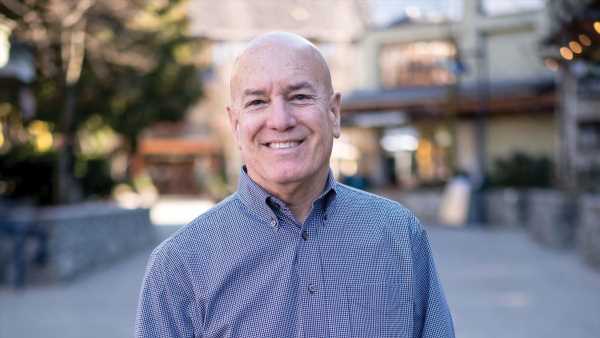'More than skiing': How mountain resorts have adapted
BANFF, Alberta — In 1978, when Michael Pierson took over as head of sales at Crested Butte Ski Resort in Colorado, he quickly set about attempting to broaden the mindset of winter travelers.
“They used to call it a ski vacation, and one of the first things that we tried to do when I worked at Crested Butte is we didn’t call it a ski trip, we called it a winter vacation in the mountains, because it was more than skiing.” Pierson, the long-time head of the Mountain Travel Symposium (MTS) conference, said during an interview at the conference late last month.
That might have been a bit of fanciful thinking in those early days, when the ski and mountain travel industries were in their adolescence. Or perhaps it was just prophetic. Because now, 45 years later, as Pierson retires from the mountain travel industry, he views the wide availability of an entire range of activities at winter mountain destinations to be one of the most profound changes to have occurred over his long career.
“The advent of foodie tourism, or going to the spa, or shopping on these types of trips didn’t really exist at that period of time,” Pierson said.
These days, however, the slopes find themselves competing against those types of activities, as well as outdoor options such as snowshoeing and snowmobiling, for the attention of tourists.
“Here in Banff, you can take a dog sled ride. I did it four years ago,” Pierson said. “I mean, how fun is that? That type of stuff wasn’t around 40 years ago in the quantity we have now.”
A changing mountain landscape
Pierson offered his views from the conference center of the Fairmont Banff Springs, where more than 900 people attended MTS during the last week of March. The conference has been owned by Travel Weekly parent Northstar Travel Group since 2014, when it purchased it from Pierson’s company, Resort Industry Marketing. Up to then, Pierson had owned or co-owned MTS since 1996 and most recently has been a strategic advisor to the show. This year marked Pierson’s final MTS, and he took the opportunity to talk about the many changes that have taken place during his decades in the mountain travel business.
Service, he said, both on the mountain and in lodging properties, has improved dramatically. He recalled that during the four years he ran the Crested Butte sales operation, he didn’t even have insight into local hotel bookings for the coming week.
“Now, because of technology, you know whether next week there is going to be a small, medium or large number of people coming into the resort. So you can scale up or scale down,” he said. “You can give a quality of service that you never could in the old days.”
On the advent of expansive season pass products, most notably Vail Resorts’ Epic Pass and Alterra Mountain Co.’s Ikon Pass, Pierson circled back to the growth in alternatives to on-mountain skiing and riding.
Passes, he said, offer much-desired flexibility to customers. That of course applies to the wide choice passholders have in terms of resorts, but it also means individuals can more easily balance their time between on- and off-mountain activities.
“You don’t have to buy a three-day ticket and be compelled to ski all three days,” Pierson said.
He also reflected on changes within the mountain travel trade show industry. Before the Internet, airlines conducted seminars to educate travel advisors about their ski-focused offerings. Michael J Pierson Associates helped merge those seminars into larger trade shows involving multiple airlines and other suppliers, before the web mostly did away with live, stand-alone seminars.
Pierson said that the basic structure of MTS has stayed largely the same for decades, with its trade and group exchanges and two-day educational forum. But the emphasis has changed from a booking show, where parties would often sign contracts on the trade floor, to one more sharply focused on relationships.
“It’s networking and relationships,” he said. “People have found out post-Covid, that you can be on a Zoom call or Teams call or whatever, but we are human beings. We are not robots.”
Source: Read Full Article



